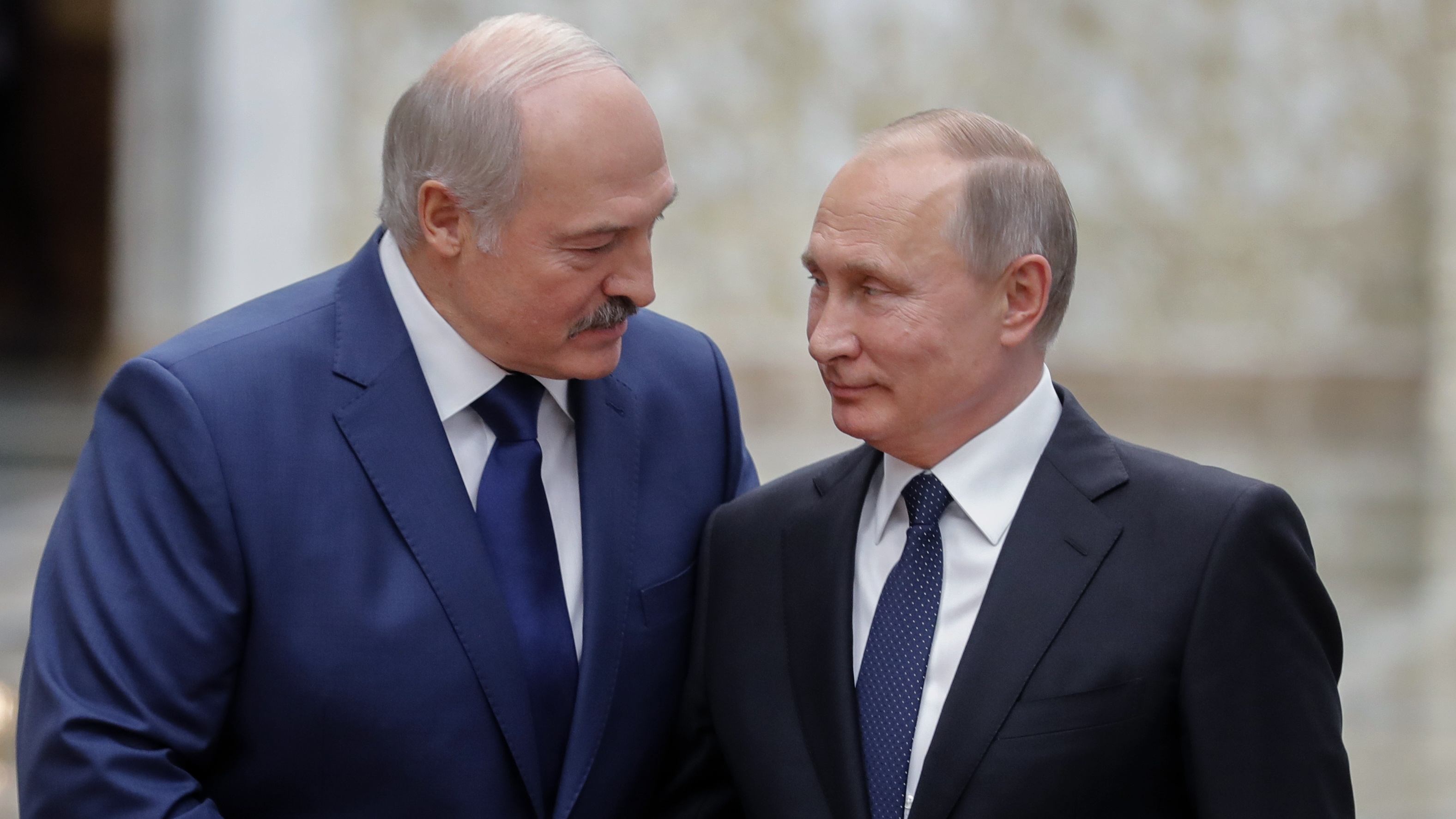Vladimir Putin prepares security force to put down Belarus election protests
Russian president confirms he is ready to send support to bolster Alexander Lukashenko’s rule

A free daily email with the biggest news stories of the day – and the best features from TheWeek.com
You are now subscribed
Your newsletter sign-up was successful
Russian President Vladimir Putin has formed a police force to intervene in Belarus if he decides it is necessary to support embattled President Alexander Lukashenko.
Speaking on Russian state TV, Putin said Lukashenko “asked me to set up a certain police reserve - I have done so”.
He went on to say that the pair also agreed that it “won’t be used until the situation gets out of control”, suggesting that there are no imminent plans to deploy the security force.
The Week
Escape your echo chamber. Get the facts behind the news, plus analysis from multiple perspectives.

Sign up for The Week's Free Newsletters
From our morning news briefing to a weekly Good News Newsletter, get the best of The Week delivered directly to your inbox.
From our morning news briefing to a weekly Good News Newsletter, get the best of The Week delivered directly to your inbox.
The comments are “the Kremlin’s most forthright show of support” for Lukashenko, The Times says, who has been battling with street protests since a disputed election on 8 August in which he claimed a landslide victory.
“We agreed that [the Russian force] will not be used until the situation gets out of control, and when extremist elements, hiding behind slogans, cross certain lines and engage in brigandry,” Putin said.
The Russian president added that his red line for intervention would be when protesters began “burning cars, houses, banks and trying to seize administrative buildings”.
Russia has an “obligation to help Belarus with its security under the two countries’ close alliance”, Putin said, stressing “the deep cultural, ethnic and linguistic ties between the two nations”, the BBC reports.
A free daily email with the biggest news stories of the day – and the best features from TheWeek.com
“The decision is a boon” for Lukashenko, The Times adds, who is facing strikes of up to 200,000 people each weekend. However, experts suspect that Putin would rather see the demonstrations “fade away”, than face a decision over whether to intervene.
Writing for American international affairs think tank the Atlantic Council, Steven Pifer, the former US ambassador to Ukraine, says that Russian involvement in his former posting was “instrumental in pushing Ukraine away from Russia and toward the West”.
“Does Moscow want to repeat this mistake with Belarus?” Pifer adds. “At present, [Putin] appears inclined to make the wrong decision, with potentially costly implications for Russia.”
Joe Evans is the world news editor at TheWeek.co.uk. He joined the team in 2019 and held roles including deputy news editor and acting news editor before moving into his current position in early 2021. He is a regular panellist on The Week Unwrapped podcast, discussing politics and foreign affairs.
Before joining The Week, he worked as a freelance journalist covering the UK and Ireland for German newspapers and magazines. A series of features on Brexit and the Irish border got him nominated for the Hostwriter Prize in 2019. Prior to settling down in London, he lived and worked in Cambodia, where he ran communications for a non-governmental organisation and worked as a journalist covering Southeast Asia. He has a master’s degree in journalism from City, University of London, and before that studied English Literature at the University of Manchester.
-
 AI surgical tools might be injuring patients
AI surgical tools might be injuring patientsUnder the Radar More than 1,300 AI-assisted medical devices have FDA approval
-
 9 products to jazz up your letters and cards
9 products to jazz up your letters and cardsThe Week Recommends Get the write stuff
-
 ‘Zero trimester’ influencers believe a healthy pregnancy is a choice
‘Zero trimester’ influencers believe a healthy pregnancy is a choiceThe Explainer Is prepping during the preconception period the answer for hopeful couples?
-
 What happens now that the US-Russia nuclear treaty is expiring?
What happens now that the US-Russia nuclear treaty is expiring?TODAY’S BIG QUESTION Weapons experts worry that the end of the New START treaty marks the beginning of a 21st-century atomic arms race
-
 Epstein files topple law CEO, roil UK government
Epstein files topple law CEO, roil UK governmentSpeed Read Peter Mandelson, Britain’s former ambassador to the US, is caught up in the scandal
-
 Iran and US prepare to meet after skirmishes
Iran and US prepare to meet after skirmishesSpeed Read The incident comes amid heightened tensions in the Middle East
-
 Israel retrieves final hostage’s body from Gaza
Israel retrieves final hostage’s body from GazaSpeed Read The 24-year-old police officer was killed during the initial Hamas attack
-
 China’s Xi targets top general in growing purge
China’s Xi targets top general in growing purgeSpeed Read Zhang Youxia is being investigated over ‘grave violations’ of the law
-
 Ukraine, US and Russia: do rare trilateral talks mean peace is possible?
Ukraine, US and Russia: do rare trilateral talks mean peace is possible?Rush to meet signals potential agreement but scepticism of Russian motives remain
-
 Panama and Canada are negotiating over a crucial copper mine
Panama and Canada are negotiating over a crucial copper mineIn the Spotlight Panama is set to make a final decision on the mine this summer
-
 Why Greenland’s natural resources are nearly impossible to mine
Why Greenland’s natural resources are nearly impossible to mineThe Explainer The country’s natural landscape makes the task extremely difficult